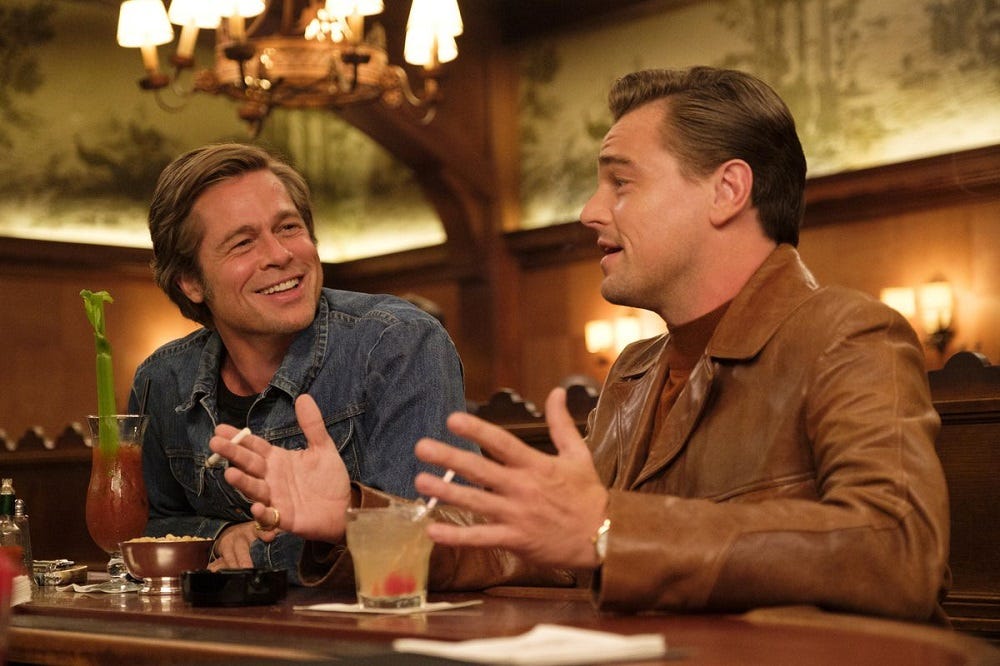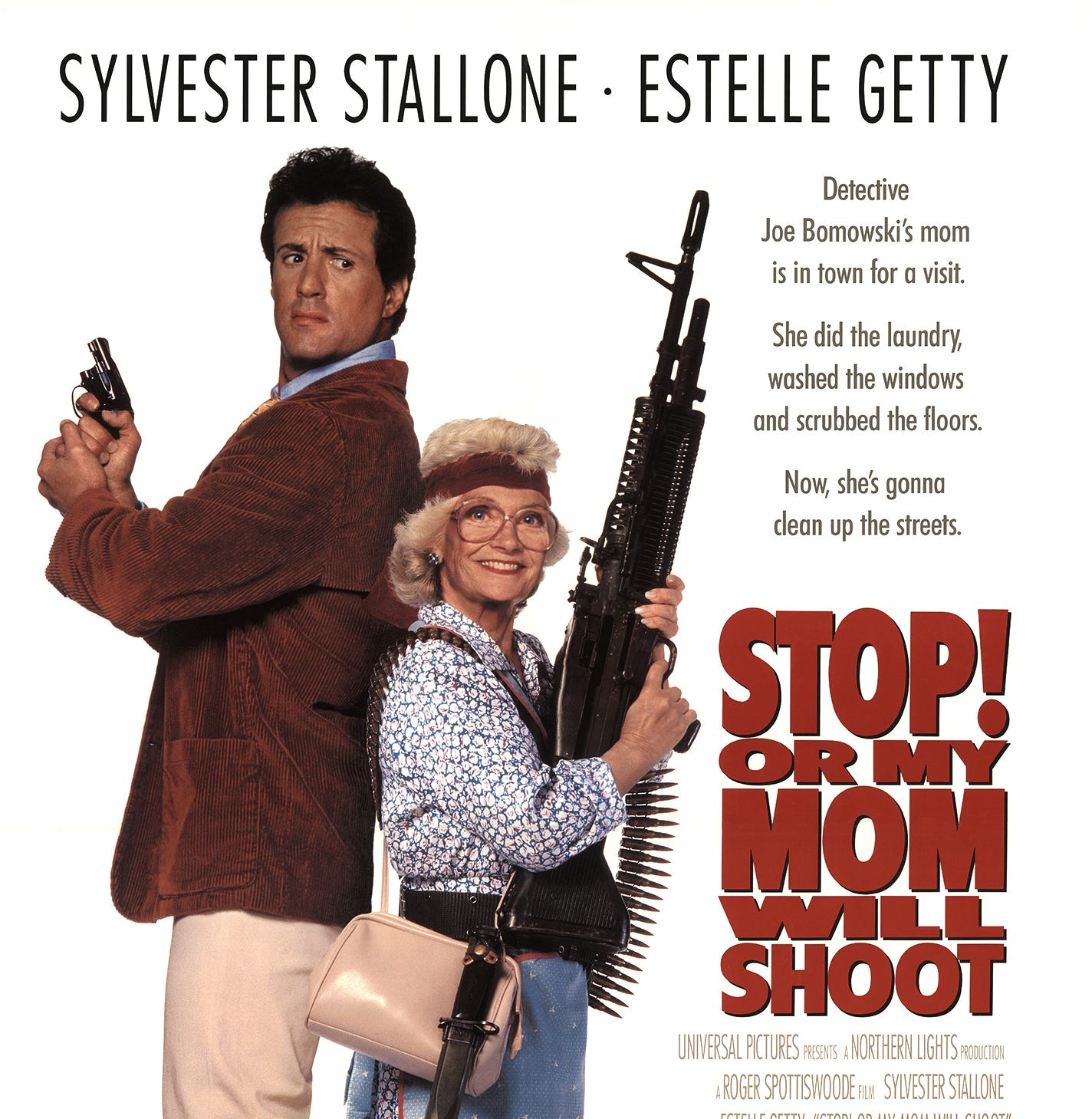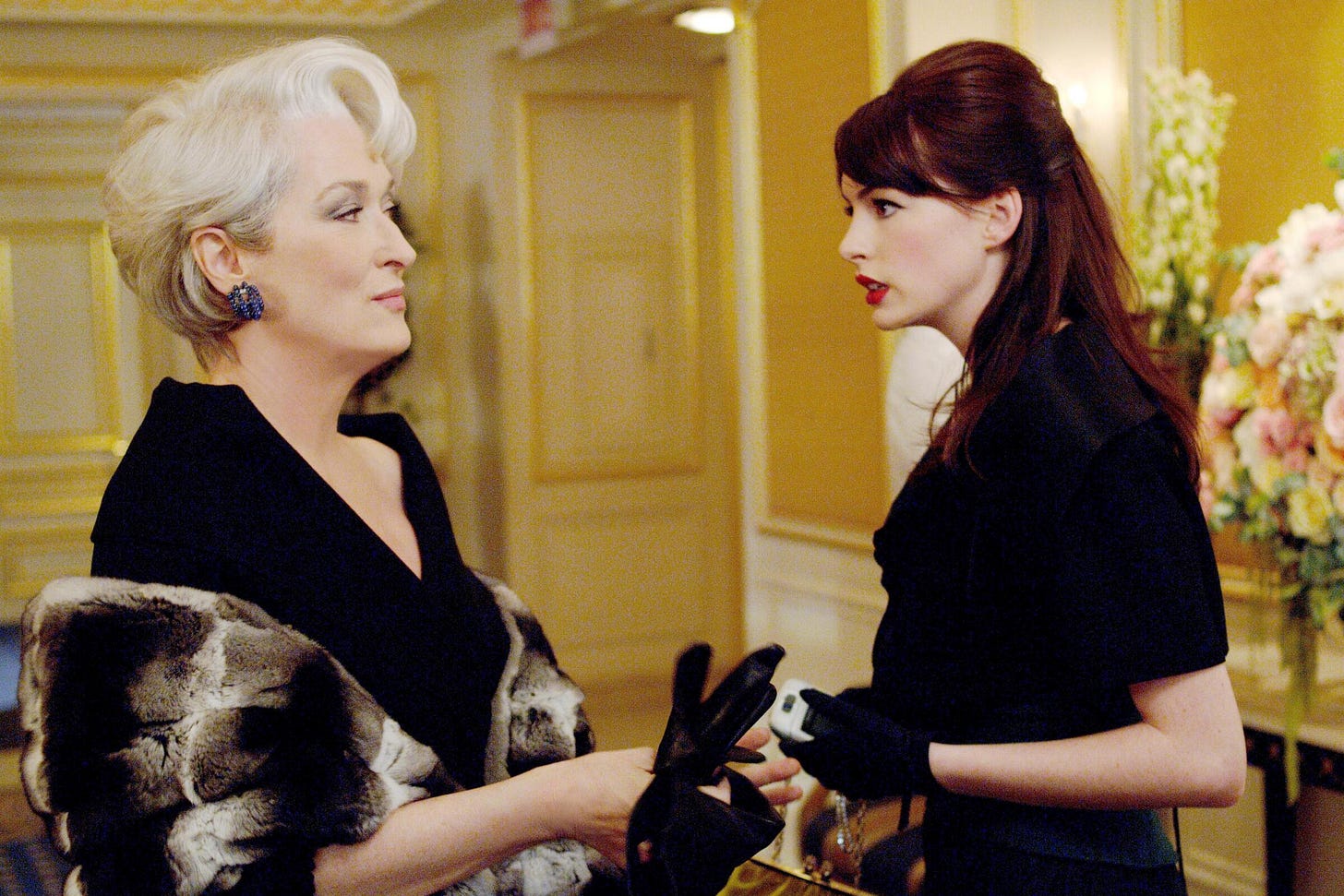Who's the Greatest Actor in Movie History? A Statistical Analysis
Who's the greatest movie actor of all time, and why?
Intro: The Beauty of Hollywood Rivalry
Mainstream action movies of the 1980s were largely defined by a rivalry between Arnold Schwarzenegger and Sylvester Stallone, with both performers producing projects marked by over-the-top spectacle, vigilantism, muscle definition, unnecessarily high body counts, and a need to accentuate kills with puns and wordplay (i.e., "consider that a divorce"). After the Oscar-winning success of Rocky, the 1980s saw Stallone mint multiple action franchises off the blockbuster success of Cliffhanger, First Blood, and several Rocky sequels. Meanwhile, Arnold Schwarzenegger brought his signature Arnold-ness to sci-fi classics like The Terminator, Total Recall, and Predator.
Given the similarities in subject matter and body composition, Stallone and Schwarzenegger were frequently compared to one another and quickly cultivated a decades-long rivalry. At the 1977 Golden Globes, Arnold openly chortled whenever Rocky lost an award, causing Stallone to throw a bowl of flowers at Schwarzenegger when the movie finally took Best Picture. The rivals frequently attacked one another through the press, insulting their competitor's physique and IQ, and tried to surpass one another with more on-screen killings and larger weapons—which led to a cinematic arms race that oddly mirrored the one occurring between the US and Soviet Union.
The Stallone-Schwarzenegger rivalry came to a head not through direct conflict but at the hands of an absolute garbage script known as Stop! Or My Mom Will Shoot, a story about a policeman who must solve a crime with—wait for it—his mother! How whacky.
In a masterstroke of machiavellian manipulation, Schwarzenegger feigned interest in the script for Stop! Or My Mom Will Shoot, knowing the project was a dud, leaking his alleged enthusiasm to the press. Stallone, eager to steal a project from his rival, took the bait and signed on for the film, which was a massive flop.
Stallone saw his stardom slowly crumble in the aftermath of Stop! Or My Mom Will Shoot, while Arnold took a victory lap in the press, a dramatic high point in a machismo-fueled rivalry for cinematic greatness.
The debate surrounding "greatest 1980s action star" is one in a long lineage of spirited movie discourse (which is a nice way of saying arguments between movie nerds), a list of long-running disputes including (but not limited to):
Pacino or De Niro?
Why do people like Donnie Darko?
Tom Cruise or Tom Hanks?
Is Greenbook a bad movie, or just a bad Best Picture winner?
Schwarzenegger or Stallone?
Which movie has the better Hannibal Lecter: Silence of the Lambs or Manhunter?
Is Meryl Streep peerless?
At the heart of these discussions lies the challenge of defining artistic “greatness,” a task that makes these debates captivating—quantifying the subjective is part of the fun.
So today, we'll take on the challenge of identifying cinema's greatest leading actors, highlighting remarkable careers based on a range of criteria, including:
Rankings from Online Databases: The people's choice.
Box Office Success: Commercial success (unfortunately) matters 🙃.
Oscar Recognition: Sometimes, the Oscars get it right.
We'll deconstruct various facets of movie celebrity before pinpointing a handful of consensus selections. Will this exercise produce something authoritative? Who knows (and who knows what it means to be an authority)? Will we better understand different expressions of cinematic greatness while discussing some wonderful movies? Absolutely.
Criterion #1: Online Ratings
Online ratings reflect an actor's skill in selecting projects and securing roles in high-quality films.
Samuel L. Jackson has been a long-time collaborator of Quentin Tarantino's, starring in acclaimed films such as Pulp Fiction, Django Unchained, and The Hateful Eight. At the same time, Jackson is also a staple of the Marvel Cinematic Universe, which means he is subject to the franchise's highs (The Avengers) and lows (The Marvels). His performances in these films aren't necessarily better or worse; the real misstep was aligning himself with a franchise that is slowly declining in quality.
Our list of actors whose projects consistently earn online acclaim features an eclectic blend of modern franchise stars and legendary performers from Hollywood's "Golden Age."
The preeminence of these performers can be attributed to a diverse set of career strategies, such as:
Partnering with Auteur Directors: Leonardo DiCaprio consistently partners with directors of the highest caliber, including James Cameron, Quentin Tarantino, Martin Scorsese, and Christopher Nolan. Jimmy Stewart is known for his collaborations with Alfred Hitchcock (Vertigo and Rear Window) and crowd-pleasing films with Frank Capra (It's a Wonderful Life and Mr. Smith Goes to Washington). These partnerships cultivate consistent quality across an actor's body of work.
Headlining High-Quality Franchises: Franchises have become synonymous with mediocrity (or worse), but that wasn't always the case. Actors like Chris Evans and Daniel Radcliffe were fortunate enough to star in series of above-average quality before a pronounced degradation in IP storytelling (re: Madame Web). Many Harry Potter films are highly-regarded, especially Alfonso Cuaron's Prisoner of Azkaban, and Chris Evans was fortunate enough to exit the MCU before it fell off a cliff.
Criterion #2: Box Office
Why include box office returns in an analysis of (actorly) performance?
For better or worse, most movies are privately funded and, therefore, expect a return on investment for their multi-million dollar budgets. To align a Hollywood star with a project is to endorse their bankability—paying an extra $10M for Brad Pitt should (hopefully) be worth the additional expense.
Our list of the most bankable movie stars, based on median inflation-adjusted box office earnings, is dominated by actors who rose to prominence in the late 1980s and 1990s, along with stars of modern IP-driven entertainment (yes, franchises are inescapable).
These actors have ridden various industry trends to sustained box office success, including:
The Box Office Boom of the 1980s and 1990s: Will Smith and Tom Cruise were Hollywood's foremost leading men during a time of rapidly expanding box office returns—a period where studios began actively manufacturing blockbuster earnings (rather than relying on serendipity). A hit movie about a character no one had ever heard of could spawn a franchise—minting new IP—thus bringing us sequels to Top Gun and Bad Boys. Arnold Schwarzenegger, Harrison Ford, and Brad Pitt are clear beneficiaries of achieving leading-man status during this period of remarkable prosperity.
Leading a Franchise: Franchises guarantee a built-in audience, thus increasing an actor's commercial and cultural capital. Actors like Robert Downey Jr. and Chris Hemsworth were figureheads of the MCU during its ascension, starring in the highest-grossing movies of all time. Daniel Craig portrayed James Bond for over two decades in films that stand out as cinematic events, generating significant box office returns due to the franchise's scarcity and storied legacy.
Enjoying the article thus far and want more data-centric pop culture content?
Criterion #3: Oscar Recognition
Everyone loves criticizing the Oscars—how they get things wrong or how the awards process is overly political.
At the same time, the Oscars offer the most direct recognition of an actor's performance, allowing us to highlight exceptional acting that transcends a film's commercial success and overall quality (to some extent).
When we quantify Academy Award recognition, as defined by career acting nominations, we get a list of "actor's actors," performers known for their dedication to craft and chameleon-like transformations.
Sure, it's fun to decry Oscar snubs because the Academy is decidedly human and somehow didn't nominate Adam Sandler for Uncut Gems. That said, our list of actors repeatedly receiving Oscar recognition mostly aligns with my understanding of Hollywood greatness:
The Preeminence of Meryl Streep: It's wild how significant an outlier Meryl Streep is on this list, especially since her career is far from over. Streep's resume is defined by early success, garnering nominations and awards for work in her early 20s, like Kramer vs. Kramer and The Deer Hunter, and unparalleled longevity, receiving recent recognition for The Iron Lady and The Post. There is an entire Wikipedia page dedicated to "awards and nominations received by Meryl Streep." As far as Oscar prestige is concerned, Streep is far and away the winner in this category.
Pacino and De Niro Finally Make an Appearance: One of the most enduring debates in film history centers around comparing the careers of Al Pacino and Robert De Niro. Both actors rose to prominence via starring roles in The Godfather films and then put together exceptional bodies of work throughout the 1970s and 1980s. Pacino and De Niro became larger-than-life figures, making their eventual team-up in 1995's Heat an almost unfathomable cinematic event. Despite their legendary status, Pacino and De Niro have occasionally chosen low-quality films that fall short of their iconic reputations, such as Jack and Jill and Righteous Kill for Pacino and Dirty Grandpa and The Big Wedding for De Niro. No matter how many missteps these actors make, their significant Oscar recognition will forever solidify their legacies—Jack and Jill be damned.
And the Winners Are...
To achieve our final result, we'll stack-rank every actor according to our three criteria and then take an average of these rankings. The obvious caveat to this methodology is that it elevates actors with versatile careers and punishes those with a significant gap in their resume (like a lack of box office success).
Leonardo DiCaprio, Paul Newman, and Al Pacino top our rankings—arguably the most iconic leading men of their eras.
When I developed this methodology, I had no idea what the final outcome would be. How would various criteria interact to produce a consensus ranking? Ultimately, I'm pretty satisfied with our final list, an (indisputably authoritative!) document highlighted by:
The Idiosyncratic Excellence of Leonardo DiCaprio: DiCaprio's career is a testament to versatility and selectivity. DiCaprio has led blockbusters like Titanic and Inception while aligning himself with accomplished auteurs like Martin Scorsese and Christopher Nolan. What's unique about Leo's career endurance is the relatively low number of projects he takes on compared to his peers. A Leonardo DiCaprio film is an event in and of itself, driven by the scarcity of his presence, thus elevating every starring role.
This List is Almost Entirely Men: With the exception of Audrey Hepburn, our list is entirely dominated by leading men. Actresses received lower rankings in internet acclaim and box office success while scoring well in Academy recognition (which has categories recognizing each gender). The lower box office averages likely result from the sidelining of actresses in the male-dominated blockbusters of the 1980s, 1990s, and 2000s—a regrettable trend that has been steadily addressed in recent years. Gender differences in average online ratings are more complex to decipher. Do acclaimed directors typically seek out male muses? Is there a bias against women in online ratings? It's hard to say for sure, given the limited dimensionality of our dataset.
Who Just Missed the Cut?: For the record, the following actors just missed the cut (in order of average ranking): Robert Downey Jr., Emma Thompson, Marlon Brando, Jimmy Stewart, Spencer Tracy, Robert Duvall, Meryl Streep, Bradley Cooper, Amy Adams, and Jennifer Lawrence, Cate Blanchett, Elizabeth Taylor, Tom Cruise, and Daniel Day-Lewis.
Final Thoughts: It's the Discourse, Not the Destination
Throughout this analysis, I was often struck by the absurdity of quantifying something so personal, human, and deeply subjective: What's incredible about Meryl Streep's performance in Sophie's Choice, Heath Ledger's Joker, or Leonardo DiCaprio's breakout in Titanic cannot be quantified. So, what was the point of this entire exercise? In my opinion, it's the discourse, not the destination, that matters.
Bill Simmons' podcast The Rewatchables revisits classic movies, offering in-depth analysis of iconic films from the 1970s, 1980s, and 1990s through a series of superlative categories, including:
The Over-acting Award
Most Rewatchable Scene
Which Actor Should Be Recast?
Who Won the Movie?
My visceral reaction to "Who Won the Movie?" is always one of contempt. "People can't win movies," I always think to myself. "That's not how art works." At the same time, I'm always captivated by the ensuing discussions, no matter how ludicrous the takes may sound. For better or worse, I just like hearing people talk about movies.
Sure, I used statistics to quantify artistic excellence (a format that, ostensibly, conveys certainty), but my approach and answers are far from definitive. In fact, that's kind of the point—there is no "right answer." In the absence of ground truth, we're left with a collection of arguments—cinephiles debating one another on podcasts, Letterboxd, and in movie theater lobbies.
This analysis (no matter how meticulous) is simply another voice, another perspective, and represents a single contribution to an ever-evolving mosaic of cinematic discourse.
That said, I'd be remiss not to point out that, statistically speaking, Arnold Schwarzenegger is better than Sylvester Stallone. Perhaps that is the most important takeaway.
Need Data Help? Stat Significant Has You Covered!
Need help with a data or research project? Well, you’re in luck because Stat Significant offers data science consulting services!
If you're looking to turn your data into strategic growth, drop me an email at daniel@statsignificant.com, connect with me on LinkedIn, or book a free data consultation at the link below.













It is an interesting exercise, but any best male actor list that does not include Daniel Day-Lewis and Marlon Brando is certifiable. I am not sure what you do to give equal balance to women, but can an acting list without the presence of Kathryn Hepburn or Barbra Stanwyck be taken seriously? No, it cannot. I saw in the comments that the box office figures were adjusted for inflation - I am genuinely surprised that significant Golden Age stars did not fare better.
Thank you for including that pic of Philip Seymour Hoffman. What an incredible talent whose career was cut way too short. Makes me wonder how high he might have climbed this list if he had been alive the last 10 years. Yes, he died in 2014!